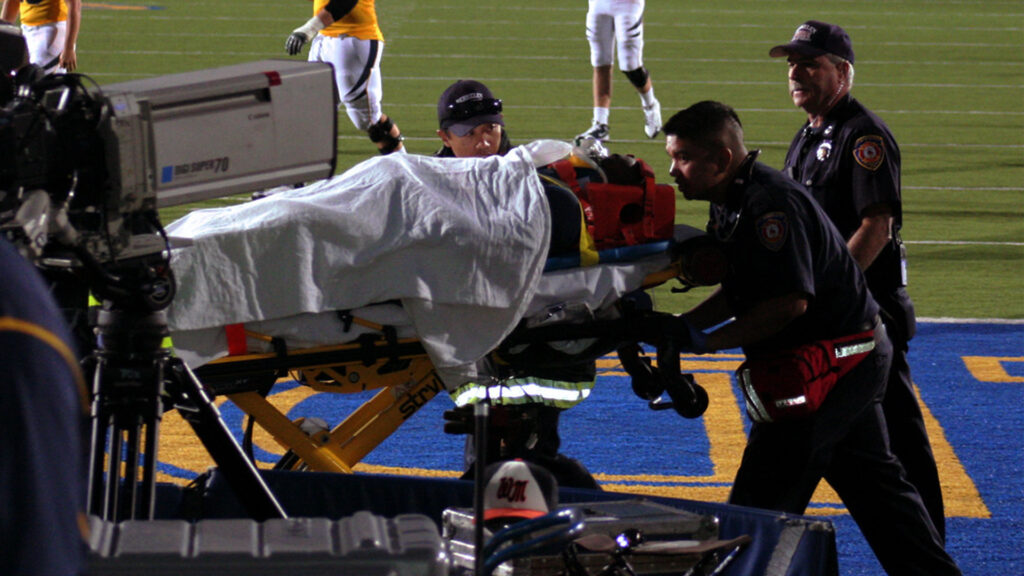Super Bowl festivities have just finished in Glendale, Arizona. Super Bowl weekend is filled with events bringing in some of the biggest celebrities and influential people from all over the world. The game itself is the most watched annual sporting event in the world. It is easy as a protector to get distracted by the “hype” that goes along with being part of this weekend.
This is one of the reasons that security companies seek to be forward leading in hiring medical professionals such as EMTs, Paramedics, and Physicians. The Super Bowl can be a logistical nightmare for executive protection teams.
You are dealing with credentials, road closures, parking, stadium infill-exfill, reservation battles, paparazzi, vehicle shortages, and the stressors of being at a highly targeted event for bad guys. Having a medical provider and proper equipment on the ground is critical for events like this, where medical attention might not be immediate if something was to go wrong.
Finding the Right EMS
Your team’s procedures must be locked in going into the weekend. Teaching these procedures is not rocket science, and it truly is something that agents develop with experience and good leadership. However, hiring agents with experience with the following training is a great way to put together a team that doesn’t let distractions affect their operation.
Former military and law enforcement are prime candidates to join these teams. Still, some of the best agents are a select few EMS professionals who have an innate situational awareness and security mindset. Not all EMS professionals are meant for EP work, nor are all former military and law enforcement personnel but it does create a good foundation for any program.
EMS professionals are some of the best at following protocols. For example, when an ambulance arrives at the scene of a severe traumatic injury, EMS professionals are immediately working under strict time constraints, known as the “golden hour.” The first hour after injury will largely determine a critically injured patient’s chances of survival.
There is also a concept of “platinum 10 minutes” where it’s believed that transport should not be delayed, and a patient should not have more than 10 minutes of scene stabilization time before being transported to a trauma center or definitive care.
The clock starts when the injury occurs and doesn’t stop until the patient arrives at a hospital trauma center to have a definitive procedure or surgery performed. By the time they get to the scene of the accident, they are already behind, which means it is vital that the assessment of each patient is rapid and on point.

The Primary Assessment
One of the first things we do when we get to a patient is doing a primary assessment. Depending on if you use MARCH Algorithm or the ABCs, you always check for scene safety, don PPE, and perform hemorrhage control.
Then we move down the line and assess the ABCs. Airway, Breathing, and Circulation. We must make sure the airway is unobstructed, and patent, there is good air movement to optimize oxygenation and determine if CPR is indicated by checking for a pulse.
Usually, the primary assessment issues are apparent and can be treated, but you can encounter a distracting injury every once in a while. Picture an open fracture, where the femur is angulated 45 degrees, and you can visualize bone, blood, and muscle protruding through the skin. When you see a limb in a place it does not belong, it’s easy to become fixated.
It looks so gruesome that human instinct is to address that problem first and block everything else out. A lot of inexperienced medical personnel get sucked down that rabbit hole. Still, a badly broken and angulated leg won’t kill anyone unless it distracts you from realizing their airway, breathing, or circulatory system is compromised.
The Take-Away
A distracting injury in the EMS universe is anything that tempts medical professionals to forget their training. It can happen to anyone, so we train to remain alert to those distractions, and practice our primary assessment until they become rote. It truly is a matter of life or death, and that skill set is very relatable to protecting your principles.
As the Super Bowl weekend is behind us, it’s essential to remember whether in an ambulance or as a security professional to not let distractions affect your operations and procedures. With training and experience, those distractions no longer adversely affect your assessment, and you can conduct your medical assessments as well as all security operations to the highest caliber.
Co-Author Wayne DeCoste manages some of the most exclusive executive protection programs across Silicon Valley over the years. Wayne backs his experience with a Master’s in Security Management and actively practices as an Emergency Medical Technician. Previously, Wayne spent nearly a decade serving as an Infantryman in the US Army and leading high-threat security teams out of the US embassy in Baghdad for the State Department.





